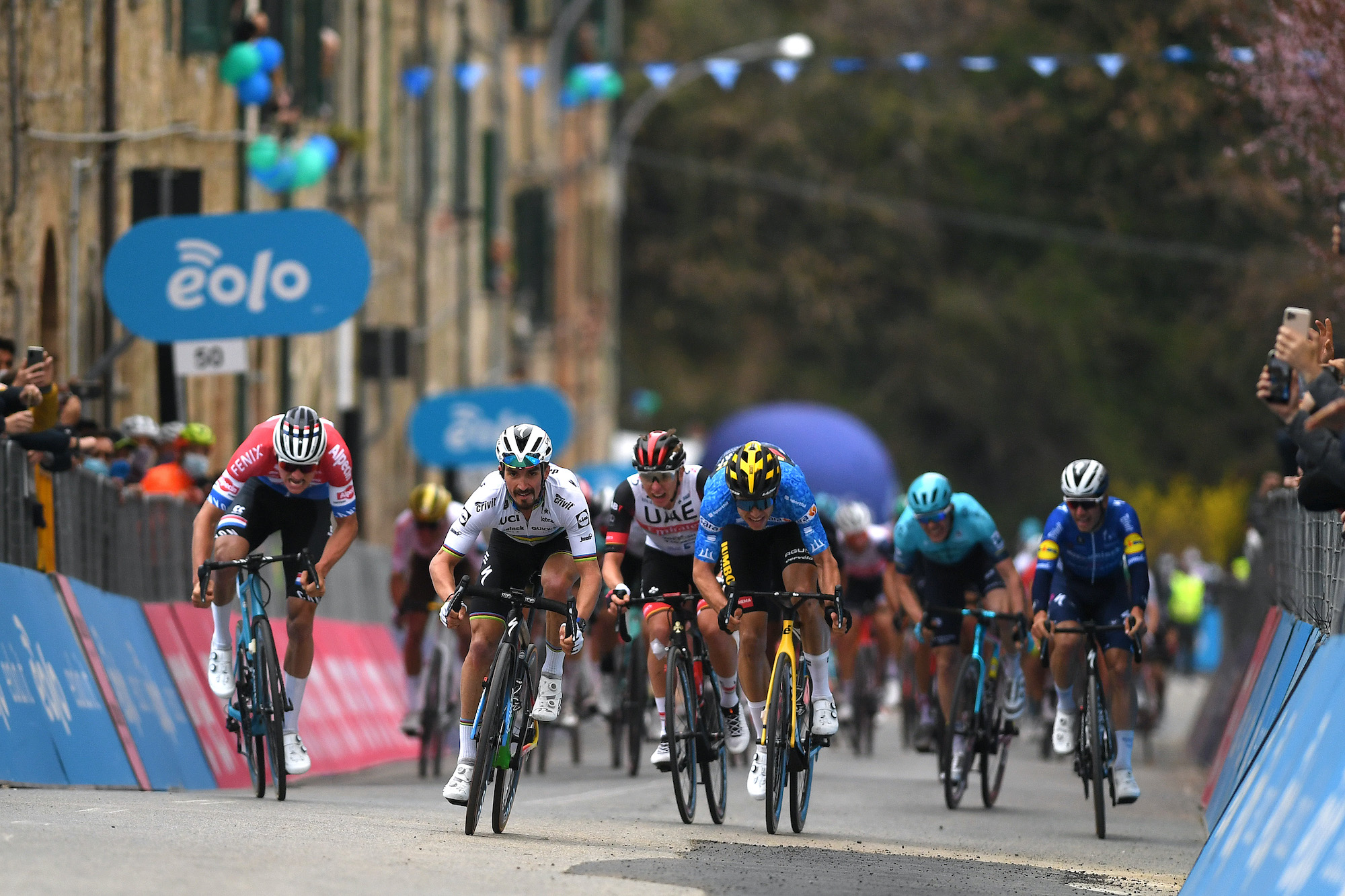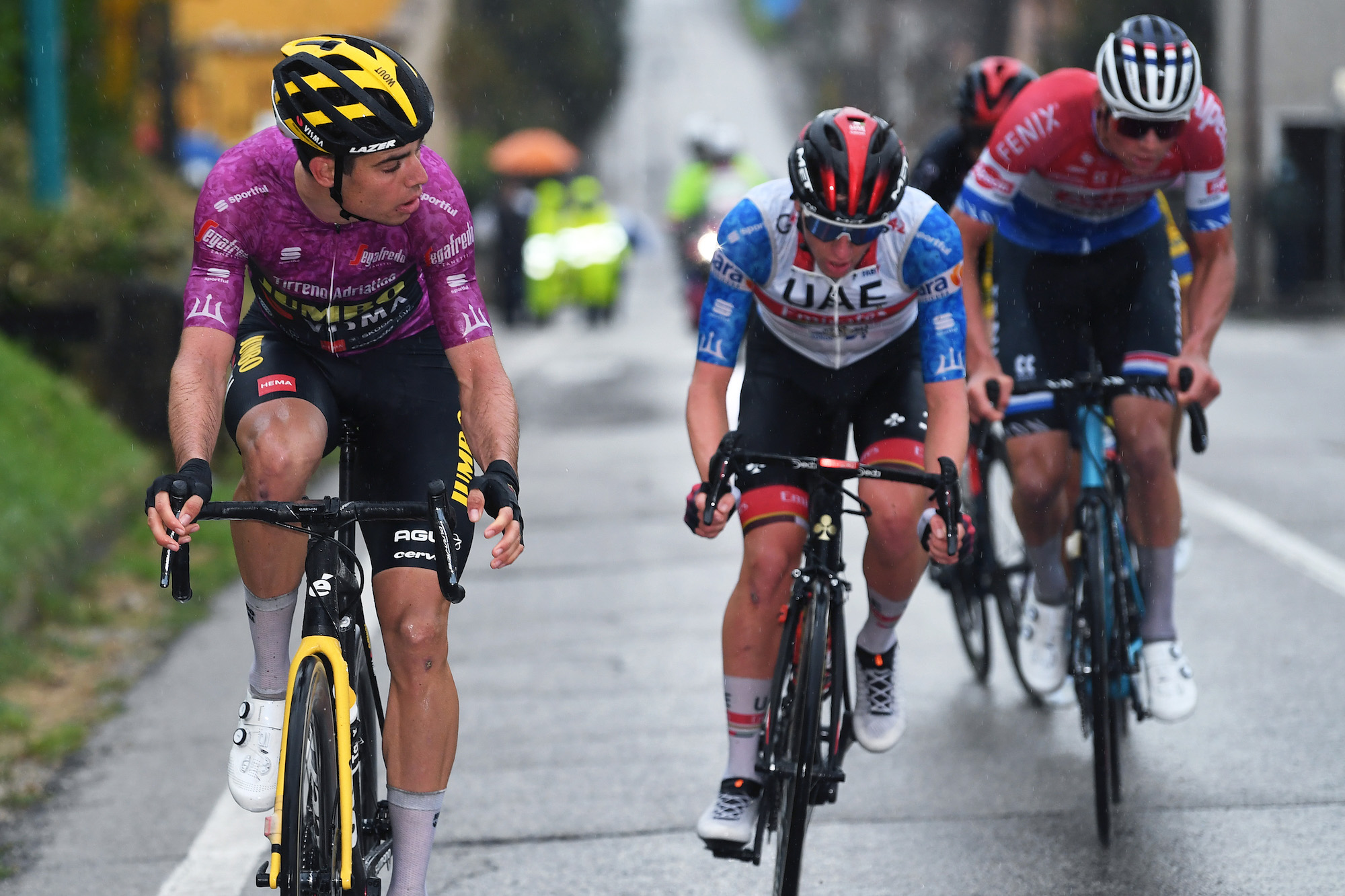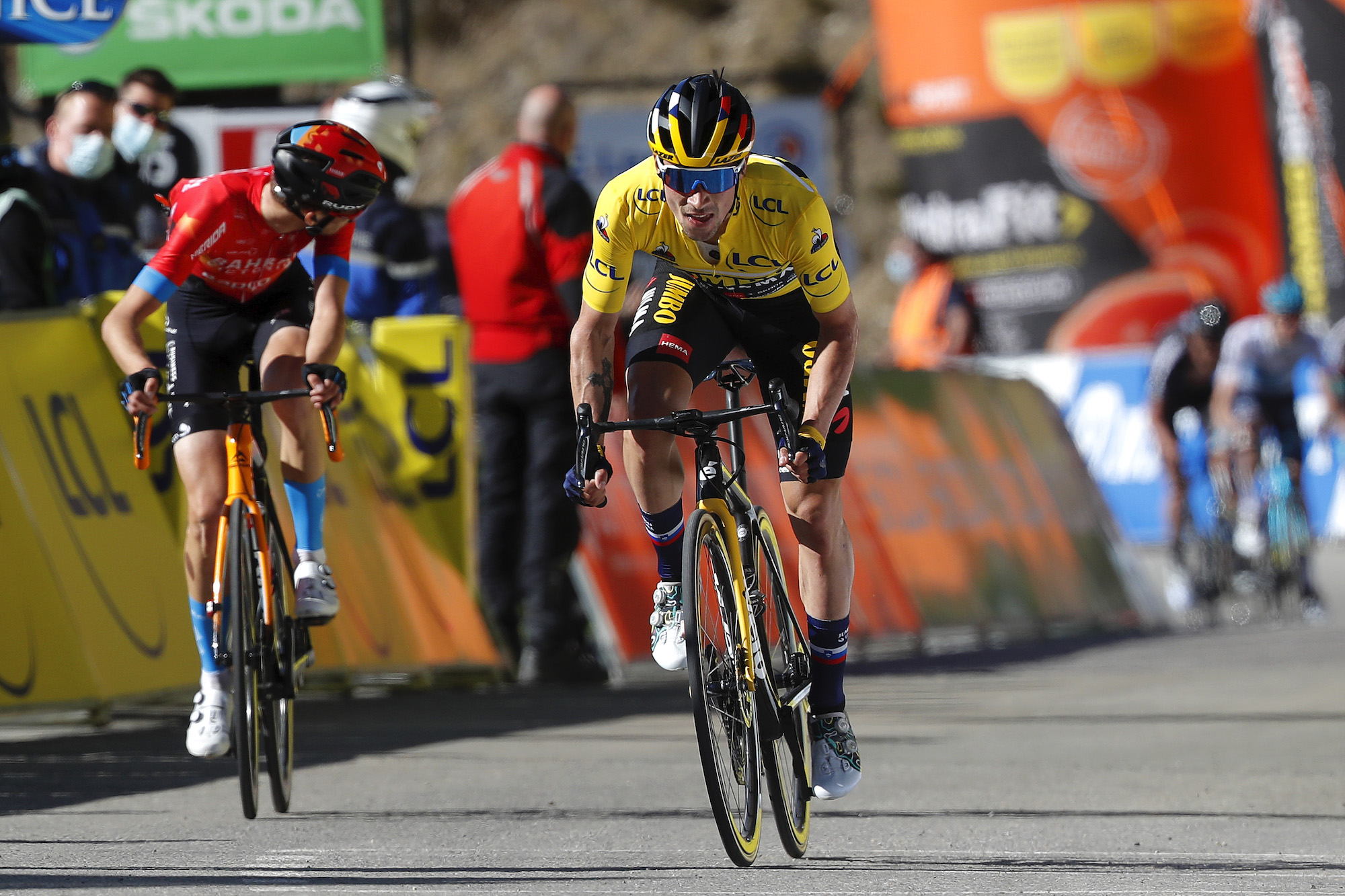Is early-season racing harder than ever? The pros have their say
The start of the season has seen top riders on flying form already - but is early-season racing harder than ever?


If you've been watching the early-season races and been thinking that the standard of racing is harder than usual, you'll be pleased to learn you're not alone.
For it is an almost universal opinion across the peloton who they themselves have been struck by the fitness and performances of their peers, weeks before the two biggest Monuments and two months ahead of the first Grand Tour.
>>> Strava data reveals rapid ascent of the Poggio in Milan-San Remo 2021
While it is the performances from the likes of Mathieu van der Poel, Wout van Aert, and Primož Roglič that have dominated the conversation, veteran of the peloton for 14 years Sander Armée said that elevated levels are not restricted to the stars.
"I noticed that I had the impression from the first race I did in Provence that the level was super high. On the uphill finishes everyone seems to ride super hard," the Qhubeka-Assos rider told Cycling Weekly.

"Doing six watts per kilo is the standard now. Almost everyone can do it.
"The overall level is higher. 10 years ago, when you did really good numbers you would finish in the top-10, but now you end up in the top-30 maybe because everyone is going fast.
Get The Leadout Newsletter
The latest race content, interviews, features, reviews and expert buying guides, direct to your inbox!
"The speed is not higher, but now more people can do it. That's what makes the racing harder because even the guys helping the leaders can ride super hard so the bunch is harder.
"All the races are nervous and fast and except for one stage at Paris-Nice, I've not had many chats in the peloton this season."
Britain's Hugh Carthy, part of the new generation of riders who is responsible for the increased difficulty of races, echoed Armée.
"The past three or four years everyone has started the season as strong as they can," the EF Education-Nippo rider said.

"I think everyone nowadays just trains hard in the winter and rides 100 per cent or close to top form. You have to be ready for that.
"Everyone is just pretty fast at this time of the year. You can only do what you can do."
Simon Yates, winner of the 2018 Vuelta a España, said that a sustained high level is "normal for those guys", referring to Roglič and Tadej Pogačar, but that "I can't do that, so I just have to peak for the races that I target."
Maintaining such form, however, is an unlikely task, claims Lotto-Soudal's Thomas de Gendt.
"We saw last season that the level is rising and it's just continuing to do so this year. It will be even harder next year," the breakaway specialist said.
"It's even hard to be in the breakaway. It's getting harder and harder.
"I think until the Tour de France it will be like this in most of the races, but nobody can keep this up for the whole season."

Thank you for reading 20 articles this month* Join now for unlimited access
Enjoy your first month for just £1 / $1 / €1
*Read 5 free articles per month without a subscription

Join now for unlimited access
Try first month for just £1 / $1 / €1
A freelance sports journalist and podcaster, you'll mostly find Chris's byline attached to news scoops, profile interviews and long reads across a variety of different publications. He has been writing regularly for Cycling Weekly since 2013. In 2024 he released a seven-part podcast documentary, Ghost in the Machine, about motor doping in cycling.
Previously a ski, hiking and cycling guide in the Canadian Rockies and Spanish Pyrenees, he almost certainly holds the record for the most number of interviews conducted from snowy mountains. He lives in Valencia, Spain.
-
 FDJ-Suez, SD Worx-Protime, Lidl-Trek confirmed for Tour of Britain Women as strong list of teams announced
FDJ-Suez, SD Worx-Protime, Lidl-Trek confirmed for Tour of Britain Women as strong list of teams announced18 teams set to take part in four-day WorldTour stage race
By Tom Thewlis
-
 Cyclists could face life sentences for killing pedestrians if new law passed in England and Wales
Cyclists could face life sentences for killing pedestrians if new law passed in England and WalesReckless cycling currently carries a maximum two-year jail term
By Tom Thewlis